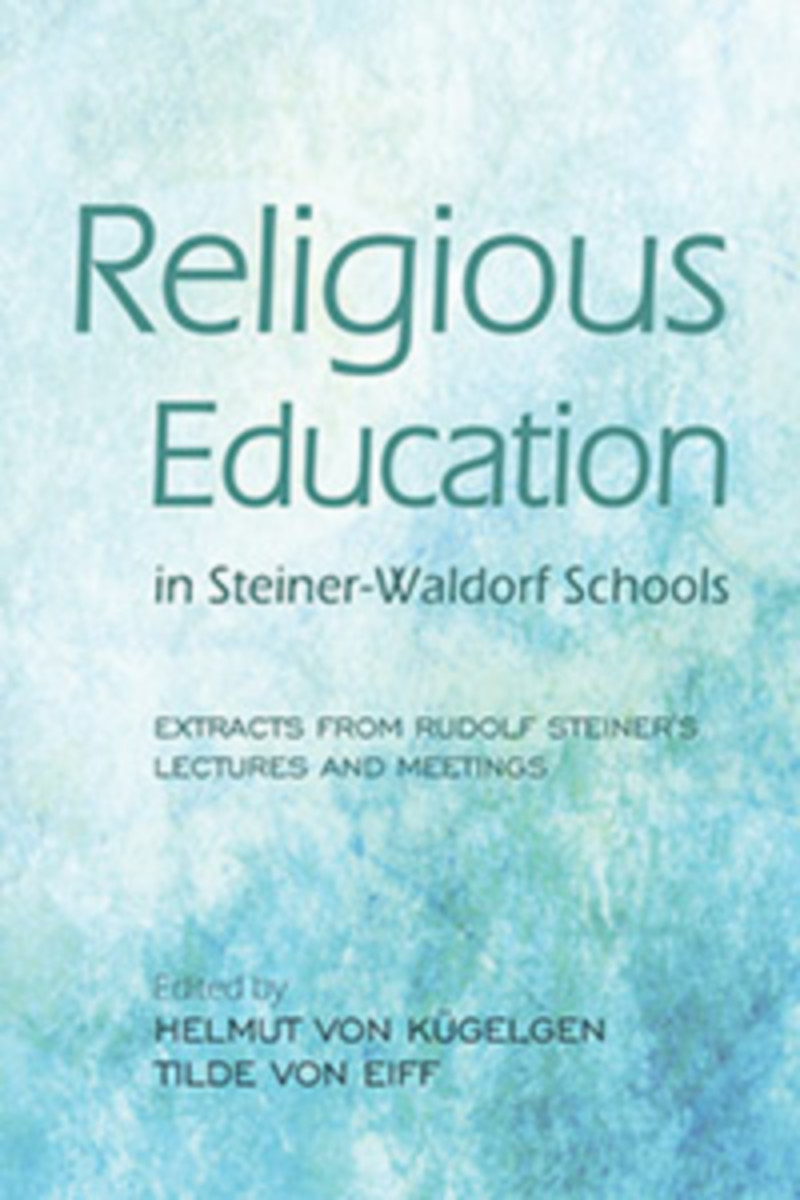Religious Education in Steiner-Waldorf Schools
Extracts from Rudolf Steiner's Lectures and Meetings
Edited by Helmut von Kügelgen and Tilde von Eiff
Foreword by Karla Kiniger
Translated by Johanna Collis
- Publisher
Floris Books - Published
6th March 2014 - ISBN 9781782500414
- Language English
- Pages 228 pp.
- Size 6.125" x 9.25"
“This careful collection of quotations from Rudolf Steiner’s lectures, together with articles by pioneer religion teachers, documents the beginning and development of the independent religion lessons and the services as an integral part of Waldorf education.” (from the foreword)
Rudolf Steiner suggested that children in the first Waldorf school who do not belong to a particular denomination could have “independent Christian religion lessons” and Sunday services. This book constitutes a comprehensive collection of Steiner's thoughts and ideas on teaching religion in Waldorf schools and on Sunday services for children. The extracts are from his lectures to teachers as well as faculty meetings.
Also included are chapters by early Waldorf teachers on how Sunday services were inaugurated and practiced in the first decades of the Waldorf movement.
This book was previously published by the Steiner Waldorf Schools Fellowship as Towards Religious Education .
C O N T E N T S:
Foreword to the English Edition by Karla Kiniger
1. Religion in Education
2. The Inauguration of Religion Lessons and Religious Services
3. The Curriculum and Methods for Different Ages
4. Division of the Religion Lessons into Class Groups and Weekly Lessons
5. Selecting Religion Teachers
6. How the Religion Lessons Relate to Denominational Lessons
7. The Sunday Services
8. How the Religion Lessons and Services Relate to The Christian Community
References
Bibliography
Rudolf Steiner
Rudolf Steiner (b. Rudolf Joseph Lorenz Steiner, 1861–1925) was born in the small village of Kraljevec, Austro-Hungarian Empire (now in Croatia), where he grew up. As a young man, he lived in Weimar and Berlin, where he became a well-published scientific, literary, and philosophical scholar, known especially for his work with Goethe’s scientific writings. Steiner termed his spiritual philosophy anthroposophy, meaning “wisdom of the human being.” As an exceptionally developed seer, he based his work on direct knowledge and perception of spiritual dimensions. He initiated a modern, universal “spiritual science” that is accessible to anyone willing to exercise clear and unbiased thinking. From his spiritual investigations, Steiner provided suggestions for the renewal of numerous activities, including education (general and for special needs), agriculture, medicine, economics, architecture, science, philosophy, Christianity, and the arts. There are currently thousands of schools, clinics, farms, and initiatives in other fields that involve practical work based on the principles Steiner developed. His many published works feature his research into the spiritual nature of human beings, the evolution of the world and humanity, and methods for personal development. He wrote some thirty books and delivered more than six thousand lectures throughout much of Europe. In 1924, Steiner founded the General Anthroposophical Society, which today has branches around the world.


